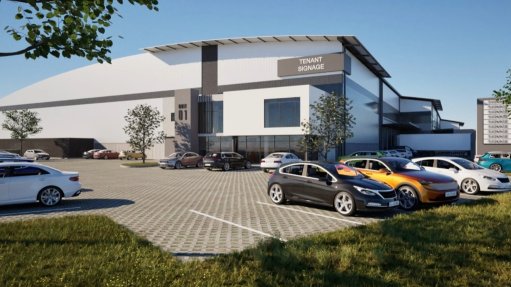Political entrepreneurship in the energy sector
The spectre of rent-seeking that comes with large capital infrastructure projects is always lurking behind the scenes. The extent to which long fingers can grab as much as possible is largely dependent on procurement design and the ability to complete projects within budget.
The more the cost overruns on a project, the greater the chance for rent grabbing. This is not always inevitable, as a lot depends on the rigour of governance and oversight over projects and the taming of the moral hazards associated with cost overruns.
Cost overruns can be a result of a planning fallacy or a more sinister phenomenon: a ‘planned fallacy’.
Two coal-fired plants currently under construction – Medupi, in Limpopo, and Kusile, in Mpumalanga – have exceeded the original cost estimates by close to three times the original budget estimate. We cannot tell whether the cost overruns at Medupi and Kusile are authentic ‘planned fallacies’ or engineered ones. What we do know is that money has been pouring out.
Every day, there is news about why these projects have failed. Once you have dug the hole and poured concrete into the ground, getting out of the cycle of construction is not an option. The intersection between construction delays and rent-seeking becomes more a fact of project life than not.
Each new round of delays brings about a new round of cost penalties. The cost cliff rises and seems inexhaustible.
This is why there are many lessons from the Renewable Energy Independent Power Producer Procurement Programme (REIPPPP).
There are certain advantages inherent in the REIPPPP procurement process – the programme has curtailed the greedy fingers of political entrepreneurs. The REIPPPP process is run by an independent institution, the IPP Office, and the bidding process is rigorous and transparent. In effect, government has left IPP productive entrepreneurs to determine between themselves and political entrepreneurs the degree of rents they can extract from IPP deals. The IPP Office’s power purchase agreements (PPAs) are focused on three outcomes: price performance, broadening of ownership and socio- economic development.
This is less so when large power plants are procured by a State-owned utility, which is the case with respect to new coal power and nuclear. In fact, there is a great deal of opportunity for rigging tenders in supply chain management rooms.
In fact, large-scale coal power plant procurements have a history of opaqueness, secrecy and sweetheart deals. Since the utility is State owned, the likelihood of political control and interference in procurement and the selection of preferred bidders is heightened. Corruption will only be exposed through the media or when the Public Protector – whose mandate is to investi- gate inappropriate use of public funds – is requested to investigate suspicious procurements and the awarding of tenders.
The overall effect of the REIPPPP is that it has created the conditions for the rapid deployment of renewables across the general economy, and this has come about because of better knowledge, the maturity of new entrepreneurs (both foreign and domestic) and the growth of renewables firms. South Africa’s procurement design for renewables, using Mustaq Khan’s insights, was able to construct a highly competitive bidding process and engage with firms that, to all intents and purposes, had no preferred and strong connections with the State, State-linked agencies or State-owned enterprises.
The bid process ensured that pure rent-seeking firms were weeded out. There was no room to secure a model of rents based on overt political connections; this could only be done through a strict bidding process and performance-linked PPA.
The REIPPPP is illustrative of the importance of understanding local rent-seeking patterns and the formation of a peculiar type of energy political economy that the lure of easy rents brings. If anything, the dispersed nature of renewables, in terms of their technology choices and the need to demonstrate specialised expertise for each of them through an open and competitive bidding process, made it difficult for predatory forms of political entrepreneurship to operate freely in such a context.
Competition itself reduced rents, as published prices of each successive round of bids demonstrated. Political entrepreneurs had to cooperate with productive entrepreneurs if they were to secure some form of rent. The price for such cooperation was that free rent-seeking was contained, as the PPAs had to have surety that power plants would perform and deliver electrons into the central grids, as promised.
The outcomes of the full Integrated Resource Plan 2010 and the new, 2017 version are all dependent on which technologies the proponents of the various technologies will want to have the dominant share of the future energy mix as the ultimate low-carbon solution for the electricity sector.
The issue of ultimate choice is already playing itself out in recurrent questions about future energy demand, costs of technologies, the debate about baseload versus intermittent sources, and economic spin-offs.
They point to two important facts: progress and success in one of the options do not tell us that things cannot be reversed, and those whose interests are being undermined by the progress of one of the options only have the effect of further energising and mobilising against the progress of the incumbent technology. It would seem that the inability of a specific technology to be the complete or holistic solution always makes it vulnerable to countercoalition and interests acting against it.
We are already seeing a vicious and dirty war being waged against renewables.
Article Enquiry
Email Article
Save Article
Feedback
To advertise email advertising@creamermedia.co.za or click here
Announcements
What's On
Subscribe to improve your user experience...
Option 1 (equivalent of R125 a month):
Receive a weekly copy of Creamer Media's Engineering News & Mining Weekly magazine
(print copy for those in South Africa and e-magazine for those outside of South Africa)
Receive daily email newsletters
Access to full search results
Access archive of magazine back copies
Access to Projects in Progress
Access to ONE Research Report of your choice in PDF format
Option 2 (equivalent of R375 a month):
All benefits from Option 1
PLUS
Access to Creamer Media's Research Channel Africa for ALL Research Reports, in PDF format, on various industrial and mining sectors
including Electricity; Water; Energy Transition; Hydrogen; Roads, Rail and Ports; Coal; Gold; Platinum; Battery Metals; etc.
Already a subscriber?
Forgotten your password?
Receive weekly copy of Creamer Media's Engineering News & Mining Weekly magazine (print copy for those in South Africa and e-magazine for those outside of South Africa)
➕
Recieve daily email newsletters
➕
Access to full search results
➕
Access archive of magazine back copies
➕
Access to Projects in Progress
➕
Access to ONE Research Report of your choice in PDF format
RESEARCH CHANNEL AFRICA
R4500 (equivalent of R375 a month)
SUBSCRIBEAll benefits from Option 1
➕
Access to Creamer Media's Research Channel Africa for ALL Research Reports on various industrial and mining sectors, in PDF format, including on:
Electricity
➕
Water
➕
Energy Transition
➕
Hydrogen
➕
Roads, Rail and Ports
➕
Coal
➕
Gold
➕
Platinum
➕
Battery Metals
➕
etc.
Receive all benefits from Option 1 or Option 2 delivered to numerous people at your company
➕
Multiple User names and Passwords for simultaneous log-ins
➕
Intranet integration access to all in your organisation

















